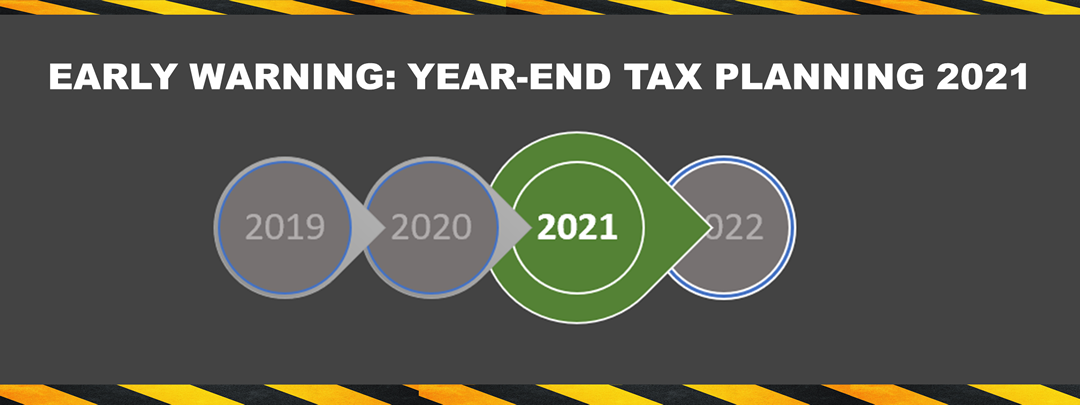
Year-end tax planning is more important than usual because it occurs concurrently with a turning point in U.S. tax policy. For the first time in 40 years, taxes on income and wealth transfers are headed higher.

Exactly what’s about to happen – which provisions of the estate and income tax laws will be revised and the financial impact on high income and high net worth individuals-- is uncertain. It depends on Congress, politics, the economy and financial markets, thus making it impossible to predict.
In recent weeks, fears of an imminent hike in estate taxes have dissipated . Congress is expected to do nothing to change current estate tax law. Doing nothing is politically expedient for Congress. It would mean the $11.7 million individual exemption from estate tax in 2021 would continue to rise with inflation until December 31, 2025. Starting January 1, 2026, the exemption would revert to approximately $6 million (after adjusting annually for inflation).
The $11.7 million exemption -- $23.4 million for couples -- would be slashed by more than 50%, if Congress does not act, which until recently seemed the most likely scenario.
For estate planning purposes, individuals with taxable estates can relax a bit but need to stay informed through the end of 2021.
Meanwhile, income tax hikes on high income individuals are expected to be enacted by the end of 2021. President Joseph R. Biden, Jr., has proposed higher income taxes on individuals with more than $400,000 of income. This makes income-tax planning more important while complicating things to do now in preparation.
As August 2021 comes to an end, this is an early warning that year-end tax planning in 2021 will be a cliffhanger and requires the attention of high-income/high-net worth individuals now. While details of the coming tax hikes are impossible to predict, one thing is certain: planning for the complex matrix of possible changes to the Tax Code, starting right now, would be smart.

